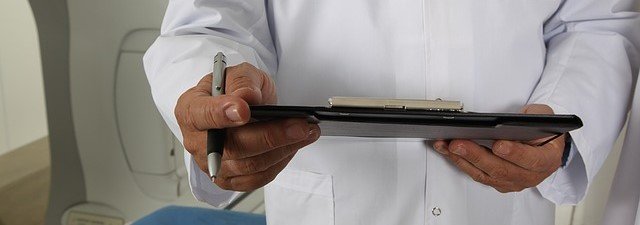Once you’ve gotten comfortable with the idea of having plastic surgery, Googling a plastic surgeon in your area is the easy part. But then comes another challenge after you’ve pieced together a list of promising prospects: how to find one you can trust.
The initial consultation is a critical part of the process, and one that shouldn’t be ignored. You’ll want to have done some homework on the plastic surgeon before the meeting, which will inform the questions you’ll be asking. (Yes, it’s OK to treat it like an interview.)
Just as important as knowing what to ask, though, is understanding the responses and being able to filter them for the information that’s most important to you. Here are a few tips to help with that.

The internet isn’t your only resource.
Sure, it puts a wealth of information at your fingertips, but it can be as overwhelming as it is helpful. So, before you start searching, talk to friends and family, even casual acquaintances, who’ve had work done recently. They’ll not only be able to help with a recommendation but they can also give you an honest rundown of the entire process, from the consultation and the surgery itself to the recovery.
If no one in your circle has had any work done recently, seek out someone you trust who works in health care, a nurse, for example, or a physician assistant. They’ll know who the best plastic surgeon is, and they’ll happily offer up recommendations.
Read everything you can online—but don’t buy into all of it.
Reviews can be incredibly helpful for developing a sense of previous patients’ experiences and a surgeon’s bedside manner. But they can also be misleading. This shouldn’t come as much of a surprise, but anonymous reviews, particularly negative ones, can be a means of seeking revenge or advancing an agenda.
It’s impossible, of course, to decipher the sincere from the purely-malicious in most cases. The best you can do is to try to look for a middle ground. Don’t be too buoyed by the gushing accounts. Nor should you necessarily buy into any overly-critical reviews. The exception in both instances is if they’re recurring themes in a very large sampling. (Think hundreds or thousands, not 10 or 20.)
Check their credentials before your consultation.
Specifically, find out if the plastic surgeon’s board-certified by the American Board of Plastic Surgery (ABPS). It’s the only specialty board for plastic surgery and cosmetic procedures that’s recognized by the American Board of Medical Specialties, the gold standard certifying body for specialty boards.
You’ll learn pretty quickly that there’s a lot of ambiguity when it comes to plastic surgery credentials. State medical boards, for example, don’t require a surgeon to be specifically trained in the procedures they offer. It’s a real problem in plastic surgery, where there are lots of other specialists performing cosmetic procedures. This is often the case when hearing about a plastic surgery procedure “gone wrong”. In fact, Dr. Davis was interviewed this Summer by the Daily Mail regarding Youtube personality, Alexa Dashian’s, recent experience with a botched lip plumbing injection.
To earn certification from the ABPS, a doctor needs to complete a minimum of six years of surgical training after medical school, with at least three of those years dedicated to a plastic surgery residency. After that, the surgeon has to pass comprehensive written and oral exams. They also need to supply the board with documentation of the cases they’ve completed since they finished their training. Basically, it’s a long, rigorous process, and there’s no room to hide.